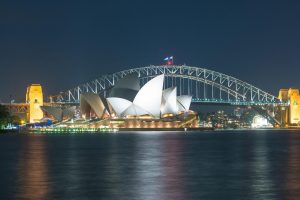Immigration updates for New Zealand, Philippines and more
Asia-Pacific
Australia: Australian Priority Migration Skilled Occupation
The Australian Priority Migration Skilled Occupation List (PMSOL) added 41 new occupations that fill critical skills to support Australia’s economic recovery from COVID-19. Employees on the PMSOL list will be given priority for visa processing.
This summary was prepared using information obtained from the Australian Government.
Malaysia: Coronavirus restrictions
The Movement Control Order (MCO) is now extended indefinitely until the number of daily Covid-19 cases is below 4,000 cases. The government foresee this to continue until mid-July or August 2021.
All physical counter services for the below immigration units are still closed during this period till further notice:
- Expatriate Service Division (ESD) – Putrajaya
- MyXpats Center – Surian Tower
- eXpats Service Center (MDEC) – Cyberjaya/Penang
- Immigration Unit (Expatriate Services)- Cyberjaya/Penang
- State Immigration
Applications submitted online will be processed as usual. However, please expect delays to the processing timeline.
Renewal of Employment Pass (EP) – ESD:
From July 1, the following documents are no longer required to be uploaded for EP renewal applications if there is no change in job title:
- Highest Education Certificate
- Resume
- Job Description
Overstay and Urgent Case:
Due to closure of immigration during the MCO period, immigration office may only process urgent cases. Nominees in LOU/APL only can reach out to helpdesk@myxpats.com.my for ESD application OR to expatctr@mdec.com.my for MDEC application to apply for a manual appointment slot if the case is urgent. The request will be subjected to approval.
For some cases, immigration may still assist with cancellations or special pass applications. However, this is on case-to-case basis and under immigration discretion.
For overstay cases pending endorsement, please keep the endorsement appointment slip at all times. A Special Pass will be applied during the endorsement.
This summary was prepared using information obtained from the Immigration Department of Malaysia.
New Zealand: Accredited Employer Work Visa – updated
On November 1, 2021, the government of New Zealand will be introducing a new Accredited Employer Work Visa (AEWV) process to replace certain existing temporary work visa processes.
- Essential Skills Work Visa
- Essential Skills Work Visa – Approved in Principle
- Long Term Skill Shortage List (LTSSL) Work Visa
- Silver Fern Job Search Visa
- Silver Fern Practical Experience Visa
- Talent (Accredited Employer) Work Visa
The aim is for employers to benefit from a simplified visa application process including the streamlining of labour market testing, which will result in more straightforward requirements and faster processing times.
As part of the new process:
- Employers seeking to apply for the new AEWV will need to undergo three steps:
- Employer Accreditation
- Labour market testing
- Visa application
- Employers will be granted an initial Employer Accreditation of up to one year with subsequent renewals of up to 24 months. There will either be a Standard Accreditation for sponsorship of up to five foreign employees or a High-Volume Accreditation for sponsorship for six foreign employees or more.
Employers will be able to apply for accreditation in September 2021. Current accredited employers may continue to apply for visas under the current rules (valid up until October 31, 2021). Accredited employers wishing to apply for the new AEWW must submit a new Employer Accreditation applications under the program by November, 2021.
Visas for foreign nationals who will be paid at or above the average wage will still be granted a visa validity of up to three years. Those on a lower wage will be granted a visa validity of up to 12 months (up from only six months previously) under the new AEWV with extensions available. If employment conditions are met, the current work visas will remain valid until their expiry date.
Immigration New Zealand is expected to release further details ahead of the launch in November.
This summary was prepared using information obtained from the Immigration of New Zealand.
Philippines: Extension of temporary travel restrictions
The Bureau of Immigration has implemented the extension of the existing temporary travel restrictions in reference to the Inter-agency Task Force for the Management of Emerging Infectious Diseases (IATF-MEID) Resultion No. 121, Series of 2021 dated June 14, 2021. The following guidelines are still enforced until June 30, 2021:
- All passengers coming from or who have been to India, Pakistan, Nepal, Sri Lanka, Bangladesh, Oman and the United Arab Emirates (UAE) within 14 days immediately preceding arrival in the Philippines shall be prohibited from entering the country.
- Filipinos coming from the foregoing countries covered by any repatriation program of the national government shall not be prohibited from entering but shall be required to:
- Present a negative RT-PCR test taken within 48 days before boarding the aircraft or vessel.
- Undergo an absolute fourteen (14)-day facility-based quarantine period notwithstanding a negative result of an RT-PCR test.
- Filipinos and foreign passengers merely transiting through India, Pakistan, Nepal, Sri Lanka, Bangladesh, Oman, and UAE shall be subject to the following rules:
- Provided they stayed in the airport the whole time and were not cleared for entry into these countries by their immigration authorities.
- Upon arrival to the Philippines, transit passengers do not need to complete a full 14-day facility-based quarantine but shall comply with the existing test and quarantine protocols.
- Arriving passengers who are fully vaccinated in the Philippines shall be required to undergo a seven day facility-based quarantine upon arrival, with the day of arrival being the first day.
- Arriving passengers who are vaccinated abroad shall undergo ten day facility-based quarantine upon arrival. The first ten days will be observed in an accredited quarantine facility of Department of Health (DOH), with the remainder to be completed under home quarantine in their respective local government units of destination.
This summary was prepared using information obtained from the Philippines Visa.
South Korea: Coronavirus update
As of July 1, 2021, the South Korean government is going to lift the two weeks mandatory quarantine for foreign arrivals who have been fully vaccinated in other countries. provided they are:
- South Korean citizens
- Visa free travelers (B-1, B-2)
- Short-term visa holders (C-1 / C-3 / C-4)
- Long-term visa holders (D-7 / D-8 / D-9 / F-4 / F-5 / F-6 / E-7)
- ARC holders (D-7 / D-8 / D-9 / F-4 / F-5 / F-6 / E-7)
Who meet all the below-listed conditions:
- Covid-19 vaccinated approved by WHO for emergency use: AstraZeneca, Pfizer, Janssen, Moderna, Sinopharm, Sinovac, Covishield.
- Fully vaccinated in the same country.
- Do not show any suspected Covid-19 symptoms at least for two weeks from the fully vaccinated date.
- Coming to South Korea for business, academic, humanitarian purpose or who are overseas South Koreans coming to meet their family members.
F-3 (dependent) and D-4 (intern) is not included.
Exemption (Subject to Change):
- Arrivals from countries with a high risk of COVID-19 variants are not allowed to apply for quarantine exemption regardless of the fact that they are fully vaccinated or not (total 17 countries).
- Argentina, Colombia, Malta, Uruguay will be added to the list from July 1, 2021.
- Application filing for quarantine exemption for those who are fully vaccinated is available from July 1, 2021 at BTSC (Business Traveler Support Center). The exact method of application filing is not confirmed yet as of Jun 28.
This summary was prepared using information obtained from the Korea Herald.
Disclaimer: The above information is provided for general information purposes only and should not be construed as legal advice. If you have any further inquiries regarding the applicability of this information, please contact Debra Jane Beynon, Regional Immigration Manager (APAC).
We track policy changes in over 120 countries. Find out how we can help you in this short video.




